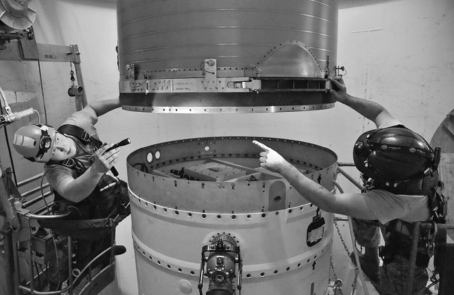Carcinogens detected at Montana missile centers

WASHINGTON — The United States Air Force has detected unsafe levels of a likely carcinogen at underground launch control centers at a Montana nuclear missile base where a striking number of men and women have reported cancer diagnoses.
The discovery "is the first from an extensive sampling of active US intercontinental ballistic missile bases to address specific cancer concerns raised by missile community members", Air Force Global Strike Command said in a release on Monday.
In those samples, two launch facilities at Malmstrom Air Force Base in Montana showed PCB levels higher than the thresholds recommended by the Environmental Protection Agency.
PCB refers to polychlorinated biphenyl, an oily or waxy substance that has been identified as a likely carcinogen by the EPA.
In response, General Thomas Bussiere, commander of Air Force Global Strike Command, has directed "immediate measures to begin the cleanup process for the affected facilities and mitigate exposure by our airmen and Guardians to potentially hazardous conditions".
After a military briefing was obtained by The Associated Press in January showing that at least nine current or former missileers at Malmstrom were diagnosed with non-Hodgkin lymphoma, a rare blood cancer, the Air Force School of Aerospace Medicine launched a study to look at cancers among the entire missile community checking for the possibility of clusters of the disease.
And there could be hundreds more cancers of all types, based on new data from a grassroots group of former missile launch officers and their surviving family members.
According to the Torchlight Initiative, at least 268 troops who served at nuclear missile sites, or their surviving family members, have self-reported being diagnosed with cancer, blood diseases or other illnesses over the past several decades.
At least 217 of those reported cases are cancers, and at least 33 of them non-Hodgkin lymphoma.
Cancer cases
What is notable about those reported numbers is that the missileer community is very small. Only a few hundred airmen serve as missileers at each of the country's three silo-launched Minuteman III intercontinental ballistic missile bases any given year.
In the US general population there are about 403 new cancer cases reported per 100,000 people each year, according to the Centers for Disease Control and Prevention, and non-Hodgkin lymphoma affects an estimated 19 of every 100,000 people annually, according to the American Cancer Society.
Missileers have raised health concerns multiple times over the years about ventilation, water quality and potential toxins they cannot avoid as they spend 24 to 48 hours on duty underground.
The discovery of PCBs by the air force occurred during site visits by its bio-environmental team from June 22 to June 29, in its ongoing larger investigation into the number of cancers reported among the missile community.
Agencies Via Xinhua

Today's Top News
- Xi to attend SCO Tianjin Summit, host relevant events
- AI role key in stimulating consumption
- Discovering truths about happiness on roof of world
- 60 years of progress marked
- The prospects for Cambodia-China cooperation
- Glimpses of Chinese path to modernization






























